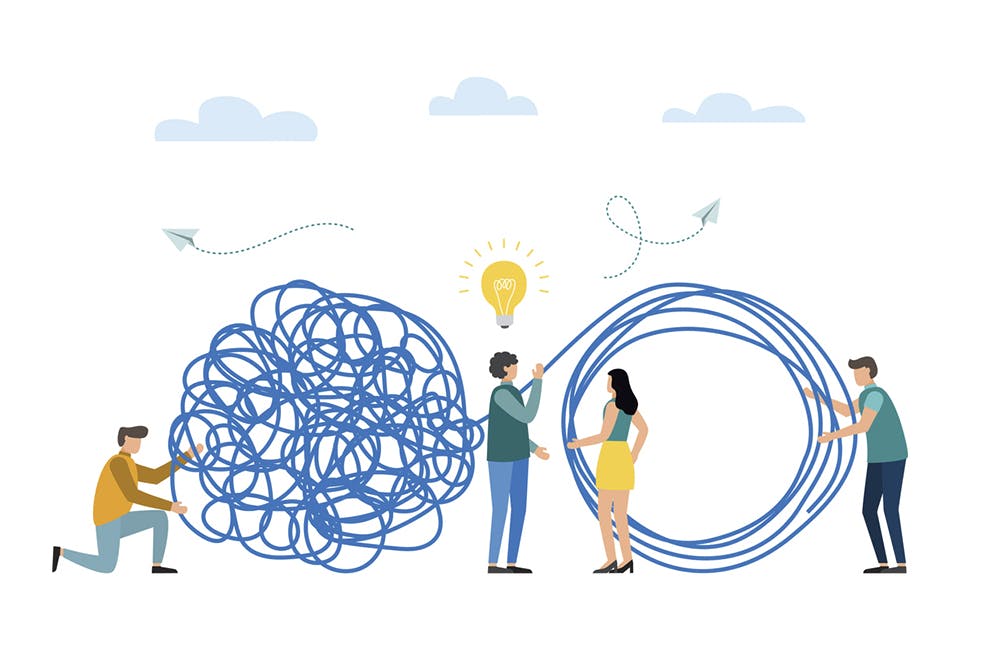NIMH Tackles Suicide Prevention, Mental Health During COVID-19
Researchers are looking into digital resources to expand access to mental health care services.

The National Institute of Mental Health (NIMH) is prioritizing suicide prevention research and promoting digital counseling resources to help mitigate and manage mental health risks during the COVID-19 pandemic.
“Suicide is complicated and tragic, but it is often preventable,” said NIMH Director Joshua Gordon during a Sept. 23 Suicide Prevention Awareness Month livestream. “Like the response to the virus itself, we have to work on surveillance and mitigation strategies that can prevent suicide and other morbidity and mortality.”
While suicide is the 10th leading cause of death overall — with more than 48,000 people dying by suicide each year — data from the Centers for Disease Control and Prevention show the national suicide rate has been steadily increasing over the past two decades. It also disproportionately affects certain subgroups, such as youth and those residing in rural areas.
Since the pandemic began, CDC researchers observed higher rates of reported depression, anxiety and suicidal thoughts.
“We do know that kids — typically about a third of them — get their mental health services in schools,” said Jane Pearson, special advisor to the NIMH director on suicide research.
“There are going to be certain kids we know from pre-COVID that are more challenged and have more mental health concerns, if not full blown disorders, so it’s really important to think about how these kids are being reached,” she said, adding that ensuring kids are able to stay digitally connected from home to psychosocial support is particularly critical during this time.
Telehealth has vastly expanded, which has created a real lifeline for people who may not have had easy access to mental health care before the pandemic, she said. However, it may be “hit-and-miss” for certain groups.
NIMH’s Intramural Research Program is researching COVID-19’s impact on suicide risk and other psychological factors, plus exploring expanding access to care for those with severe mental health disorders that make communication challenging, like schizophrenia.
“How do you extend the treatment out of the office and into the home? Because traditionally, there are a lot of barriers just for people to get into the office to receive care. Now with concerns with the pandemic, it only exacerbates those,” explained Steven O’Connor, chief of the suicide prevention research program in NIMH’s Division of Services and Intervention Research.
NIMH is also working with its suicide prevention grantees “to help them adapt and apply ongoing research to the current crisis,” while “adapting effective interventions to digital platforms and determining their feasibility and effectiveness is of particular interest,” said Gordon.
Though results from research to understand the long-term impacts of COVID-19 on these groups and how they receive mental health care will take time — six months to a few years — NIMH aims to reduce the national suicide rate by 20% by 2025, in collaboration with the National Alliance for Suicide Prevention.
“We want to learn the lessons we can learn in the context of the pandemic, so that it can be helpful to maximize mental health in the context of other emergencies to come,” said Gordon.
The research experts encouraged people who may be struggling with suicidal thoughts and other mental health concerns to connect with trained counselors for free, 24/7 confidential support through the National Suicide Prevention Lifeline and SAHMSA’s Disaster Distress Helpline.
This is a carousel with manually rotating slides. Use Next and Previous buttons to navigate or jump to a slide with the slide dots
-

DOL's AI Chief Outlines Intersection of Tech and AI
DOL CAIO Mangala Kuppa is driving innovation, collaboration and ethical AI integration to enhance operational efficiency.
5m read -

DOD Cyber Crime Center Appoints New Executive Director
Lesley Bernys previously served as CIO at the Air Force Office of Special Investigations.
2m read -

Cyber Leaders Urge Congress to Modernize Election Security Systems
Experts prompt a bipartisan approach to cybersecurity to protect U.S. critical infrastructure and future elections from evolving threats.
4m read -

Defense Tech Developments to Watch in 2025
The new Fulcrum strategy sets up the Defense Department to shore up AI, zero trust and the workforce.
6m read







